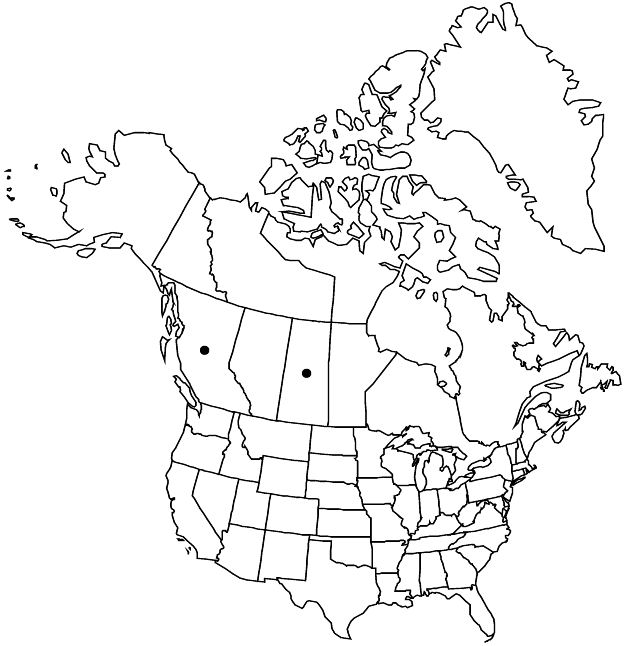Difference between revisions of "Crataegus sheila-phippsiae"
Sida 21: 67, fig. 2. 2004.
FNA>Volume Importer |
RevisionBot (talk | contribs) m (Bot: Adding category Revised Since Print) |
||
| (5 intermediate revisions by 3 users not shown) | |||
| Line 23: | Line 23: | ||
-->{{Treatment/Body | -->{{Treatment/Body | ||
| − | |distribution= | + | |distribution=B.C.;Sask. |
|discussion=<p>Varieties 2 (2 in the flora).</p> | |discussion=<p>Varieties 2 (2 in the flora).</p> | ||
|tables= | |tables= | ||
| Line 47: | Line 47: | ||
-->{{#Taxon: | -->{{#Taxon: | ||
name=Crataegus sheila-phippsiae | name=Crataegus sheila-phippsiae | ||
| − | |||
|authority=J. B. Phipps & O’Kennon | |authority=J. B. Phipps & O’Kennon | ||
|rank=species | |rank=species | ||
| Line 54: | Line 53: | ||
|basionyms= | |basionyms= | ||
|family=Rosaceae | |family=Rosaceae | ||
| − | |distribution= | + | |distribution=B.C.;Sask. |
|reference=None | |reference=None | ||
|publication title=Sida | |publication title=Sida | ||
|publication year=2004 | |publication year=2004 | ||
|special status=Endemic | |special status=Endemic | ||
| − | |source xml=https:// | + | |source xml=https://bitbucket.org/aafc-mbb/fna-data-curation/src/2e0870ddd59836b60bcf96646a41e87ea5a5943a/coarse_grained_fna_xml/V9/V9_1018.xml |
|subfamily=Rosaceae subfam. Amygdaloideae | |subfamily=Rosaceae subfam. Amygdaloideae | ||
|tribe=Rosaceae tribe Gillenieae | |tribe=Rosaceae tribe Gillenieae | ||
| Line 68: | Line 67: | ||
}}<!-- | }}<!-- | ||
| − | -->[[Category:Treatment]][[Category:Crataegus (sect. Coccineae) ser. Rotundifoliae]] | + | --> |
| + | |||
| + | [[Category:Treatment]] | ||
| + | [[Category:Crataegus (sect. Coccineae) ser. Rotundifoliae]] | ||
| + | [[Category:Revised Since Print]] | ||
Latest revision as of 19:09, 6 November 2020
Shrubs, arborescent, 30–50 dm, or thicket-forming, 15–30 dm. Stems: twigs: new growth green, glabrous, 1-year old shiny, brown, older gray; thorns on twigs straight or slightly recurved, 1-year old shiny, dark blackish brown, older deep gray, moderately slender to stout, 2–6 cm. Leaves: petiole length 28–40% blade, pubescent, sparsely to densely persistently glandular; blade green mature, ± rhombic, (2–)3.5–5(–6) cm (2.5–5 cm at flowering), thin-chartaceous, base cuneate, lobes 2–4 per side, sinuses: max LII 20%, lobe apex acute, margins serrate, teeth small, veins 4 or 5 per side, apex acuminate, abaxial surface glabrous, hairy in axils and parts of main veins, adaxial scabrous. Inflorescences 3–18-flowered; branches glabrous or sparsely pilose young; bracteoles linear, membranous, margins sessile-glandular. Flowers 14–20 mm diam.; hypanthium glabrous; sepals triangular, length not recorded, margins barely glandular-serrate; stamens 18–20, anthers white to pale pink, sometimes medium pink or puce; styles 4 or 5 (arising from small tuft of hairs). Pomes brilliant orange-red or crimson scarlet early, becoming bright red or dark burgundy, suborbicular, 10–12 mm diam., glabrous; sepals spreading; pyrenes 4 or 5.
Distribution

B.C., Sask.
Discussion
Varieties 2 (2 in the flora).
Selected References
None.
Lower Taxa
Key
| 1 | Plants arborescent, 30–50 dm; anthers white to pale pink; thorns on twigs 2–4 cm; leaf blades 4–6 cm, at early anthesis larger than flowers; pomes burgundy, sometimes darker; British Columbia. | Crataegus sheila-phippsiae var. sheila-phippsiae |
| 1 | Plants shrubby, thicket-forming, 15–30 dm; anthers white to cream; thorns on twigs 3–6 cm; leaf blades 2–4(–5) cm, at early anthesis little larger than flowers; pomes orange-red to bright red; s Saskatchewan. | Crataegus sheila-phippsiae var. saskatchewanensis |